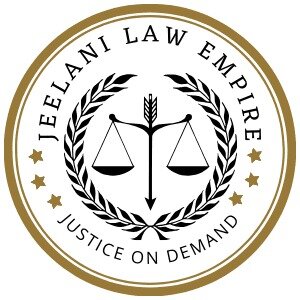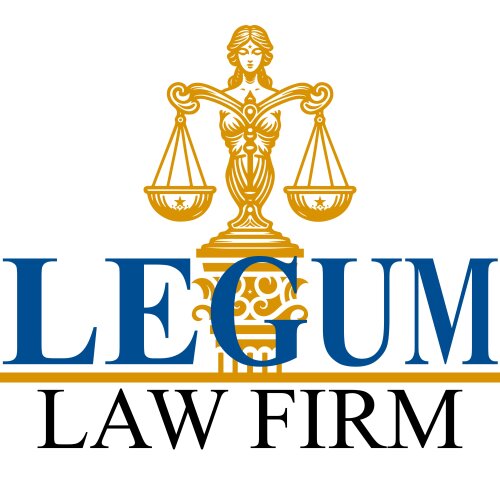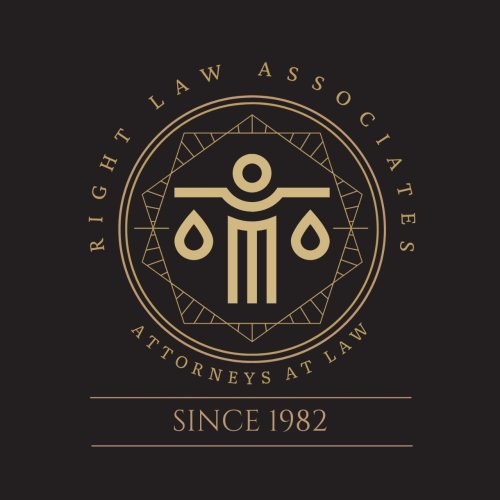Best New Business Formation Lawyers in Karachi
Share your needs with us, get contacted by law firms.
Free. Takes 2 min.
List of the best lawyers in Karachi, Pakistan
About New Business Formation Law in Karachi, Pakistan
Starting a new business in Karachi, Pakistan, is governed by several local and national laws. These laws pertain to business registration, licensing, taxes, employment, and operation regulations. Businesses are primarily regulated by the Companies Act of 2017, the Pakistan Partnership Act of 1932, and the Business Registration Act, along with relevant municipal laws and decrees. It's essential to comply with these laws to avoid any legal complications in the future.
Why You May Need a Lawyer
If you plan to start a new business in Karachi, you may need a lawyer to navigate through the complex legal process of new business formation. A lawyer can help in preparing and reviewing the necessary documents, ensuring compliance with the tax laws, and understanding the necessary permits and licenses. Furthermore, a lawyer can provide ongoing assistance with legal issues that arise during the course of business operation, such as contract disputes, employment law issues, and intellectual property matters.
Local Laws Overview
In Karachi, the key laws related to business formation include the Companies Act, 2017, which provides an overall legal framework for companies. The Pakistan Partnership Act, 1932, governs the formation of partnerships, while the Business Registration Act oversees the registration and operation of sole proprietorships. Local municipal laws in Karachi may also apply, including zoning laws and business license regulations.
Frequently Asked Questions
1. How do I register a new business in Karachi?
To register a new business, you need to apply with the Securities and Exchange Commission of Pakistan (SECP), provide all required documents, and pay the registration fee. A lawyer can guide you through this process.
2. What type of business should I form?
The type of business you should form depends on your circumstances and business goals. The common types are sole proprietorship, partnership, and companies (private or public). Each type has its advantages and disadvantages, which a lawyer can explain in detail based on your situation.
3. What are the key legal issues to consider when starting a new business?
Key legal issues include business ownership structure, registration requirements, tax implications, intellectual property protection, and labor law compliance.
4. Do I need a business license to operate in Karachi?
Yes, most businesses require a license to operate. The type of license depends on the type of business and its activities. Failing to obtain the appropriate license can lead to legal consequences.
5. Do I need a lawyer to form a business in Karachi, Pakistan?
While it's not mandatory, having a lawyer can eliminate legal risks and complexities associated with the formation of a new business. A lawyer can ensure that all processes are legally sound and that you avoid potential violations.
Additional Resources
The Securities and Exchange Commission of Pakistan (SECP), the Federal Board of Revenue (FBR), the Investor Education Program by the Grant Thornton Anjum Rahman (GTAR), and the Karachi Chamber of Commerce and Industry (KCCI) offer resources, tools, and information relevant to new business formation. It can be helpful to familiarize yourself with these resources as you plan your new business.
Next Steps
If you need legal assistance in forming a new business in Karachi, begin by researching and contacting experienced business lawyers in the area. Consider discussing your business plan with a lawyer to understand the potential legal implications. Once you've decided on the type of business structure, your lawyer can help you with the registration process, comply with licensing requirements, and ensure you meet all other legal obligations.
Lawzana helps you find the best lawyers and law firms in Karachi through a curated and pre-screened list of qualified legal professionals. Our platform offers rankings and detailed profiles of attorneys and law firms, allowing you to compare based on practice areas, including New Business Formation, experience, and client feedback.
Each profile includes a description of the firm's areas of practice, client reviews, team members and partners, year of establishment, spoken languages, office locations, contact information, social media presence, and any published articles or resources. Most firms on our platform speak English and are experienced in both local and international legal matters.
Get a quote from top-rated law firms in Karachi, Pakistan — quickly, securely, and without unnecessary hassle.
Disclaimer:
The information provided on this page is for general informational purposes only and does not constitute legal advice. While we strive to ensure the accuracy and relevance of the content, legal information may change over time, and interpretations of the law can vary. You should always consult with a qualified legal professional for advice specific to your situation.
We disclaim all liability for actions taken or not taken based on the content of this page. If you believe any information is incorrect or outdated, please contact us, and we will review and update it where appropriate.

















